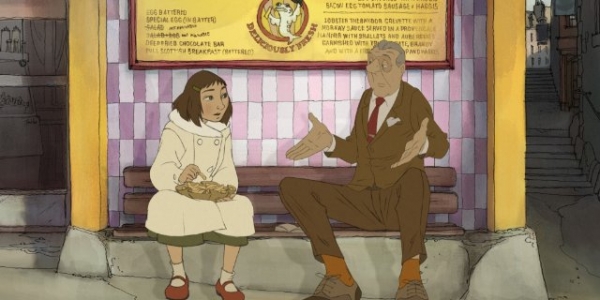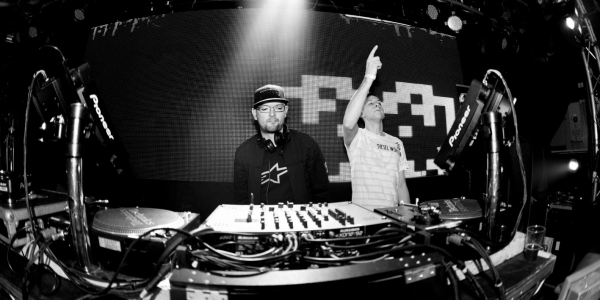The film is based on the 1959 script written by the late great Jacques Tati, who died in 1982, but never filmed. Tati (best known for films like Mr Hulot’s Holiday, etc) was a Chaplinesque comedian known for his intricate, silent routines and incomparable flair for physical slapstick comedy. This wonderful and largely dialogue free film pays homage to Tati. The central character himself is named Tatischeff, and he embodies Tati’s distinctive look and mannerisms and his impeccable sense of comic timing. There is a hint of something autobiographical in the material as it touches upon his own relationship with his daughter. Apparently Tati’s own daughter Sophie passed the script on to Chomet, and he does the material justice.
In the tradition of Tati, there is very little dialogue, and characters communicate largely through grunts and almost inaudible bouts of mumbled dialogue. There is a brief glimpse of Tati in action in his classic comedy Mon Oncle, which is screening in a cinema which Tatischeff visits.
Set at the end of the 1950’s, The Illusionist is a rather poignant and melancholy tale of thwarted dreams and disappointment. The film follows a down and out magician (Jean-Claude Donda) on a journey of disillusionment as he comes to realise that he and his vaudeville art form are largely irrelevant in this modern and rapidly changing world. Upon leaving France he moves to London, where disappointment follows disappointment as his gig at a theatre is replaced by the latest vapid long-haired pop band. He becomes increasingly disillusioned as he is forced to play at obscure theatres and smaller gigs.
He receives an unexpected invitation to perform in Scotland, at the behest of a drunken Lord. There he meets the lonely servant girl Alice (voiced by Eilidh Rankin), who idolises him and believes that his magic tricks are real. She later follows him to Edinburgh. They move into a seedy hotel, which is home to a troupe of circus acrobats. Their relationship is strictly a Platonic one, but it changes their lives forever. While he pretends indifference to Alice he does buy her the occasional special little gift. But when he hits his lowest career point, working in a garage at night and performing in a shop window display, he realises that his time has passed.
The city of Edinburgh, beautifully realised by Chomet and his team of artists, is almost a third character in the film. Chomet imbues The Illusionist with a wistful and almost nostalgic tone, and the film has a solid emotional punch that is quite moving. There are also touches of visual humour with some great sight gags and a clever running gag featuring an unco-operative rabbit.







